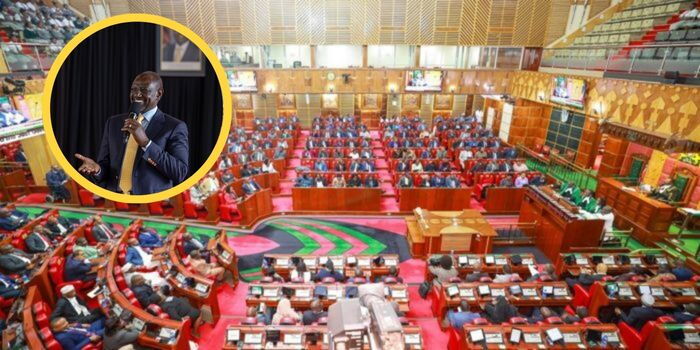Why MPs Have Struggled to Stop Looting in Government
Parliament has come under sharp criticism for failing to stop the widespread looting and mismanagement of funds in government institutions and parastatals. However, Saboti Member of Parliament Caleb Amisi believes Parliament is not the only weak link in this fight.
According to him, the system itself is designed in a way that makes it nearly impossible for MPs to act quickly and effectively on corruption cases flagged by the Auditor General.
Speaking during an interview on Citizen TV, Amisi explained that the main challenge lies in the timing of the Auditor General’s reports. These reports are usually released just three months before Parliament breaks for recess, leaving audit committees very little time to investigate.
As a result, by the time Parliament resumes, most of the cases either stall or are overtaken by other urgent matters, making accountability harder to achieve.
Amisi, who also serves as a member of the Public Investments Committee (PIC), pointed out that the huge number of parastatals in the country—estimated at nearly 200—makes the situation worse. He questioned how realistic it is for MPs to scrutinize all these institutions within such a short period.
“Audits are conducted three months after the close of the financial year. With about 200 parastatals, how can Parliament realistically review all their audited accounts within that period?” Amisi posed.
He went on to note that Parliament usually breaks from December to February, meaning that the actual review work only starts in March, when MPs are back in session.
The lawmaker further revealed that even when committees manage to review some of the reports and submit their findings, the next stage—implementation—rarely happens as it should.
He explained that once the Committee on Implementation prepares its report, the responsibility shifts to investigative agencies such as the Directorate of Criminal Investigations (DCI) and the Ethics and Anti-Corruption Commission (EACC). However, these agencies are often overwhelmed by the sheer number of cases.
“When the Committee of Implementation submits its report, who is supposed to take it up? The DCI or EACC. But can EACC handle hundreds of cases at once? That is exactly where the problem lies. The reports end up piling up, and action is either delayed or never taken at all,” Amisi remarked.
This failure to follow through has created a massive backlog of unresolved cases, some of which date back several years. According to Amisi, the loophole has been exploited by corrupt officials who know that accountability is weak, allowing them to continue misusing public funds with little fear of consequences.
To address the problem, Amisi has called for a complete review of the legislation that guides how Parliament and other authorities handle Auditor General reports. He argued that unless the law is changed, MPs will remain powerless in ensuring accountability.
“We must solve this problem through legislation. Looking at how the current laws are structured, it is simply not feasible for Parliament to deliver on its oversight role. We need a framework that allows due diligence and proper follow-up of these reports,” he said.
His concerns come at a time when fresh revelations from the Auditor General have shocked Kenyans. A recent special audit exposed that citizens had been irregularly charged over Ksh2.1 billion in transaction fees while accessing government services through the eCitizen platform.
According to the report, the government unlawfully imposed a Ksh50 charge on transactions, which went against directives issued in Gazette Notice No. 9290/2014 dated December 23, 2014.
Additionally, the Controller of Budget (COB) has released the County Governments Budget Implementation Review Report for the 2024/2025 financial year, which exposed alarming irregularities, particularly in Nairobi.
The findings once again highlighted how poor oversight and weak enforcement continue to drain billions of shillings from public coffers, further deepening the problem of corruption.
Amisi’s remarks now add weight to the ongoing debate on whether Parliament, investigative agencies, and other oversight bodies are truly capable of ending the culture of looting in Kenya’s public offices—or whether structural reforms are urgently needed to stop this endless cycle.
Join Government Official WhatsApp Channel To Stay Updated On time
https://whatsapp.com/channel/0029VaWT5gSGufImU8R0DO30


